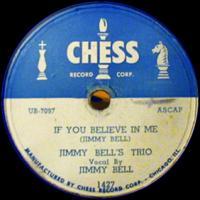
The Tirolean Spa Had the Chess Boys In It
Edward Lasker said that “An intriguing phenomenon which links mathematics, music, and chess is the fact that child prodigies have been known in only these three fields.”
This wonderful aphorism recently set me to thinking about the intricate connections between the two latter fields and those who dwell within them.
One might naively presume any connection between chess and music to be surprising since one resides in the seemingly visual domain of boards and pieces while the other lives in the auditory realm of melodies and harmonies. Chess is a duel between antagonists while music is either a solitary or a collaborative expression.
So if these domains are so different, then why are there individuals who excel not only as world-class chess players but also first-rate musicians and composers? Why is there an annual chess tournament at the Moscow Conservatory? Why is there a Hip Hop Chess Federation?
I have recently written about François-André Danican Philidor, who was not only the dominant chess player of the 18th century, but also a superb composer of classical music. In 1753, he wrote of himself in the third person saying that “the art of music has been at all times his constant study and application, and chess only his diversion.” When I wrote my Philidor blog, I had never actually heard his music, but like a patzer taking back a bad move, I have rectified that blunder and actually purchased some of his delicious compositions.
You may want to listen to some of his beautiful operatic creations as you continue reading the rest of this blog either here for his Carmen Saeculare
or here for his Ernelinde Princesse de Norvège.
When you are finished reading, I would suggest taking a few minutes to read about a celebration of chess and music at the Château de Villandry south of Paris. The audio narration is by Grandmaster Alexandra Kosteniuk and includes selections of Philidor’s music played by pianist Natasha Kudritskaya.
But Philidor is not an isolated example. Indeed, Russian Grandmaster Mark Taimanov, who was one of the world’s ten best chess players in the 1950’s, displayed a noticeable talent for both chess and music by the time he was eight years old. Taimanov became a Candidate in 1953 and again in 1970, vying for the opportunity to play for the world chess championship until he was devastated by Bobby Fischer a year later, losing all six of their games. When commenting on this crushing defeat, Taimanov remarked that “At least I have my music.”
And indeed he did have his music for Taimanov studied music at the Leningrad Conservatory and toured the world with his former wife, both famous concert pianists. You may listen to their work on various YouTube videos, e.g. playing Rachmaninoff here or this lovely concerto by Poulenc.
Vasily Smyslov is known not only as the world champion in chess from 1957 to 1958, but also as an accomplished baritone, nearly being selected to join the Bolshoi Opera in 1950. He has often performed by singing to the attendees at chess tournaments during breaks, sometimes being accompanied by Taimanov. If you go to the British Pathé, you can watch a video in Russian of Smyslov singing and playing the piano. (The piano playing is not in Russian, so monolingual English speakers might still understand that part of the video.)
I asked above why there is such a connection between chess and music when the two fields of endeavor seem to be so different. Others may have more profound answers than myself, but I do have a hypothesis. It is the concept of pattern that dominates both chess and music; and not just the concept of pattern, but temporal pattern. This is very important.
The beauty to be found in a chess masterpiece depends critically upon the temporal relationships of the moves, no less so than the temporal relationships of the notes in a musical masterpiece. Thus, it seems natural to me that a great mind would be drawn to both chess and music for exactly this reason.
I have suggested to my friend K. P. Unnikrishnan, the best scientist I personally know and one of the founders of the field of temporal data mining, that applying his algorithms to large chess databases might yield some insights of value to chess masters. And I would also suggest now that similar insights for music theoreticians might be gained by similarly analyzing large databases of musical scores.
Yes, there is much to be said about chess cum music, and I believe that I shall have to return to this topic in a future blog. In the meantime, and by way of coming to the final movement of this blog, I should explain the origin of the blog’s title for those of you who may not recognize it. These enticing words were taken from the lyrics of the greatest song about chess in the genre of popular music – One Night in Bangkok by Murray Head.

